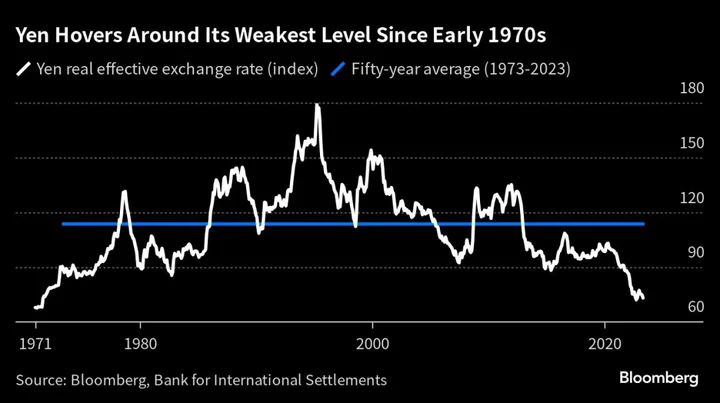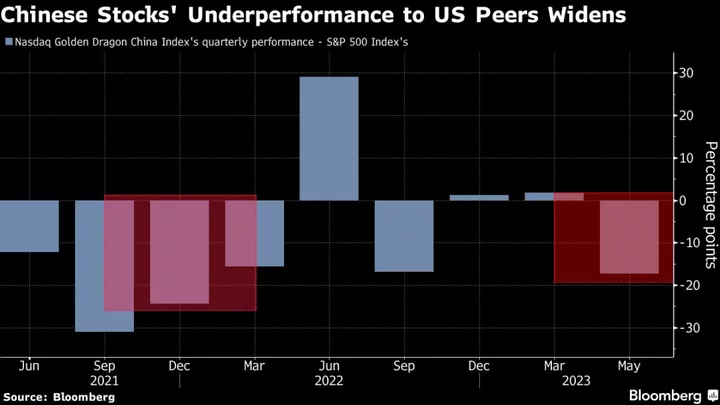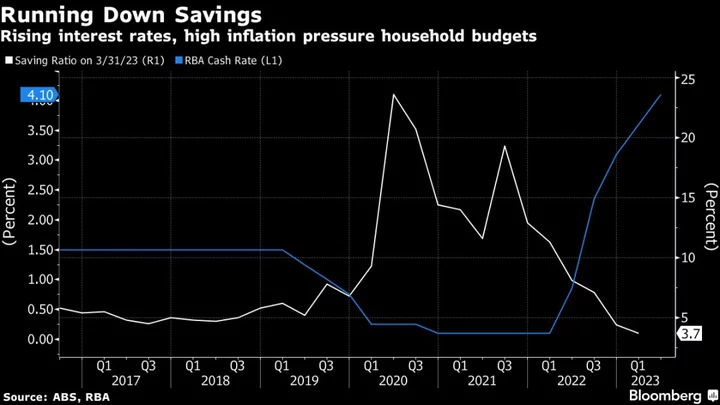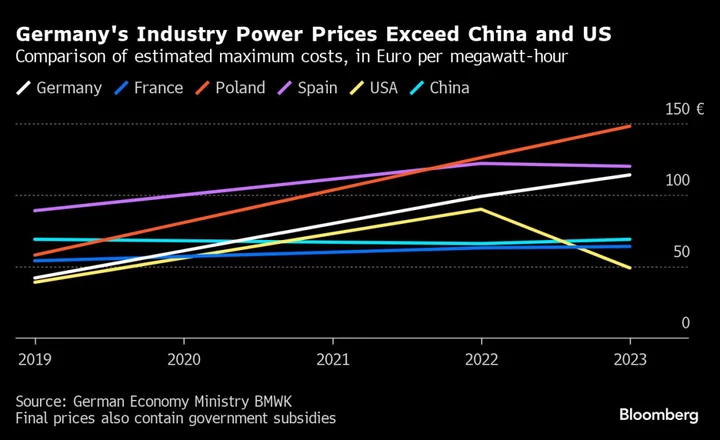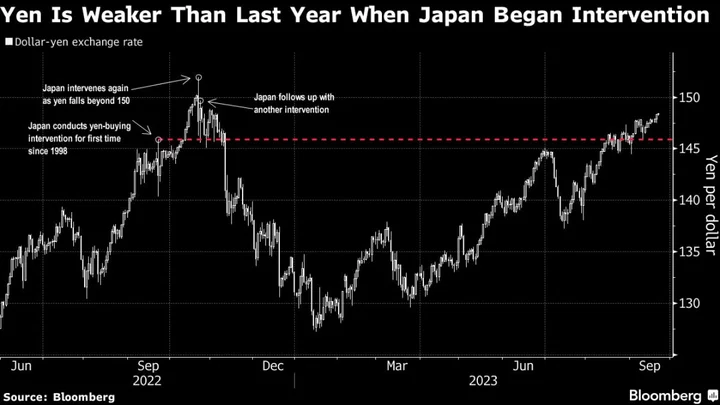Yen bulls that have reaped nothing but disappointment in 2023 are finally eyeing gains as the currency climbs to its strongest in a month.
Predictions that the yen was poised for a 10% rally as Japan relented on its ultra-dovish monetary policy have yet to pan out, but signs that the currency is at a turning point are mounting. So, rather than changing their positions, some international investors are diversifying their rationale, and increasingly pinning their hopes for yen strength on the start of a global recession.
It’s easy to see why. The odds major economies will crash are rising as central banks are forced to keep tightening amid stickier-than-expected inflation, according to JPMorgan Chase & Co. economists. With that in mind, the yen — which tends to benefit from safe-haven flows — looks chronically undervalued as the currency’s trade-weighted, inflation-adjusted exchange rate hovers around lows last seen in 1971.
“We’re only going to get closer to that eventual global recessionary risk and the likelihood of that is only increasing as we get into year-end and next year,” said Viraj Patel, a strategist at Vanda Research, who sees the yen gaining about 20% if the world economy rolls over. “It’s just a matter of timing rather than the catalyst being wrong.”
Indeed, the currency has climbed around 3% this month, outperforming almost all other Group-of-10 currencies after notching the worst performance among peers in the first half. It it strengthened past the closely-watched psychological 140 per dollar level on Wednesday in a five-day winning streak. In the options market, investors also appear to be positioning for a stronger yen ahead of Federal Reserve and Bank of Japan rate decisions later this month.
Coming into this year, yen bulls had every reason to be optimistic. The government had propped up the yen for the first time since 1998 — effectively putting a floor under the currency. Japan’s central bank seemed on course to tighten its highly accommodative monetary policy. And other central banks looked set to cut rates as their economies slowed.
Instead, the yen slipped back toward the levels that had prompted intervention in October, Japan’s policymakers have stayed pat, and the Fed has continued raising interest rates to try to control inflation.
Recession Bets
UBS Global Wealth Management sees timing a US recession as now key to the yen’s performance.
While the Swiss money manager has trimmed its forecast, Dominic Schnider — head of global foreign exchange and commodities — remains bullish, expecting the Japanese currency will finish 2023 more than 9% stronger at 128 per dollar.
The currency should climb once US data starts to moderate, he said. “Having long-yen exposure also acts as a risk-off hedge in a portfolio context should renewed financial market stress emerge,” he added, pointing to a March bounce in the yen as a handful of US regional banks crashed.
Capital Economics has also stood by a call for yen strength, with a year-end target of 130. The firm expects safe assets to regain lost ground in the second half as developed economies tip into recession and the appetite for risk sours.
Economists surveyed by Bloomberg forecast dollar-yen at 135 in six months, while the forwards market points to a more moderate path of appreciation.
Dollar-yen risk reversals over the next six and 12 months have stayed within negative territory since November, indicating that options traders are also expecting the pair to drop.
Still, plenty on Wall Street remain to be convinced. Asset managers added to their bets against the yen last week, boosting such wagers to the highest this year, and leveraged funds also increased their short positions. JPMorgan revised on Friday its dollar-yen target by year-end to 152 from 142, implying a 7.5% depreciation of the Japanese currency.
But the rationale for a yen rally — at some point — is hard to dismiss for those with the stomach to stick around.
Bank of America Corp. sees a modest 3% slide for the yen to 145 by year-end, but with room for the yen to advance next year as a broader downturn takes hold.
When the US central bank is finally forced to cut rates — around mid-2024 according to BofA estimates — the yen will finally appreciate, said Athanasios Vamvakidis, a strategist at the US bank.
“It’s all a matter of time,” he said.
--With assistance from Yumi Teso.
(Updates latest yen prices)

